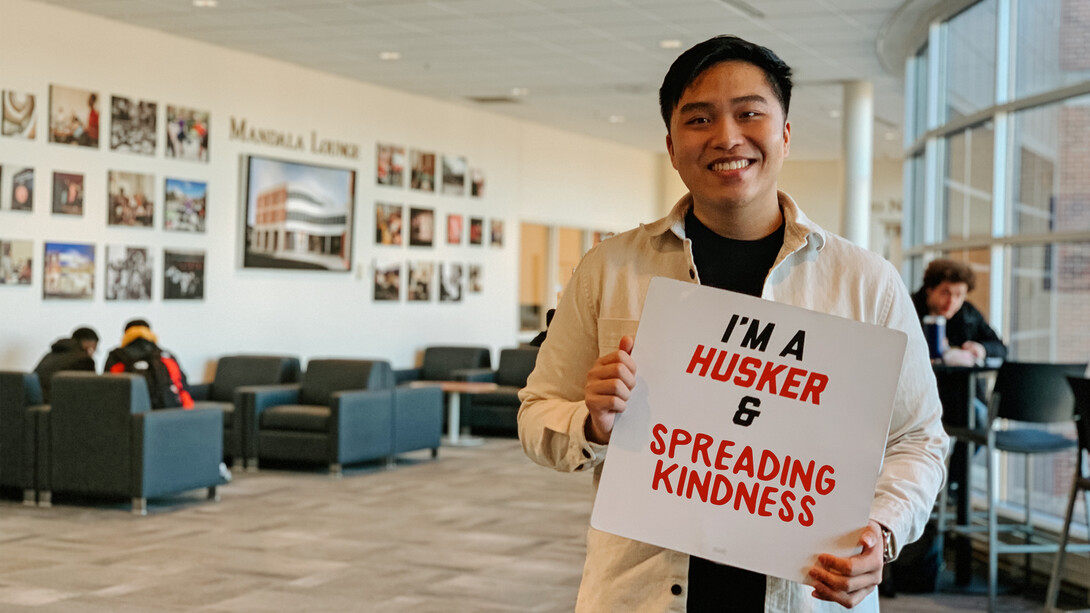
According to Eric Yim, any day is a good one to do something nice for your fellow Huskers — and doing something nice for someone else even has benefits for you, too.
“Small acts of kindness affect everyone involved. Both sides become happier because of the chemicals released when you do something kind for someone else,” said the president of the University of Nebraska–Lincoln’s Random Acts of Kindness group. “It’s a win-win.”
Yim knows this not because of the research he does in the Department of Chemistry, but because of a psychology professor he recently invited to speak to the Random Acts of Kindness group.
Regular guest speakers are among the many — and varied — benefits of joining the group, one that Yim started this academic year to help support the mental health of Huskers around campus.
“Forty percent of college students report having felt too depressed to function and 60% have experienced overwhelming anxiety,” Yim said. “This organization is hopefully a way to reduce those numbers on our campus and be a relief to people who need it.”
Yim knows that these aren’t just numbers. The loss of a friend to suicide in high school — and the formation of a local kindness group afterward — inspired him to bring the concept to Nebraska in hopes of creating an outlet for students to decompress, talk about mental health and spread some kindness.
“Any given month, we have about three events. We try to have one study hour, where people can just come, get to know each other and bring some food, another meeting with a guest speaker, and a third that’s either volunteering or some random act of kindness,” he said.
Recent acts of kindness perpetrated by the group include handing out cookies on campus, stream cleanups and volunteering with local nonprofits. Yim also plans to host a rock painting party and possibly stress awareness seminars with therapy dogs this spring semester.
It’s low commitment, he stressed, just like small acts of kindness.
“There’s a potential for little things to have a ripple effect that can lead to a much greater impact,” he said.
Learn more about the university’s Random Acts of Kindness group.







